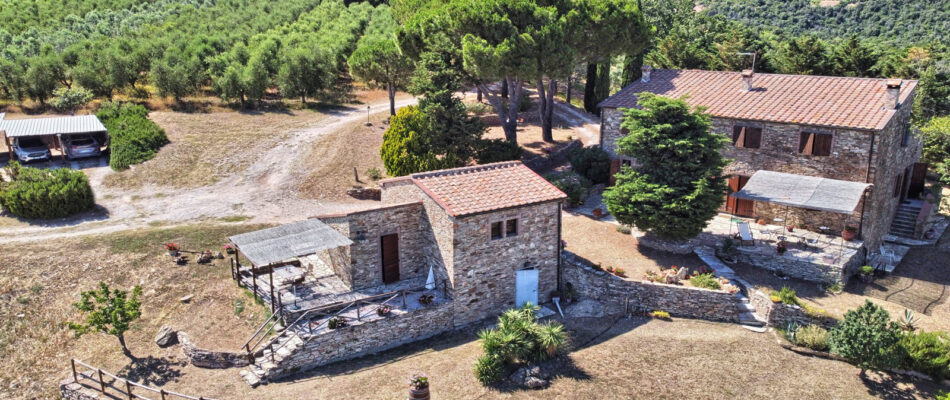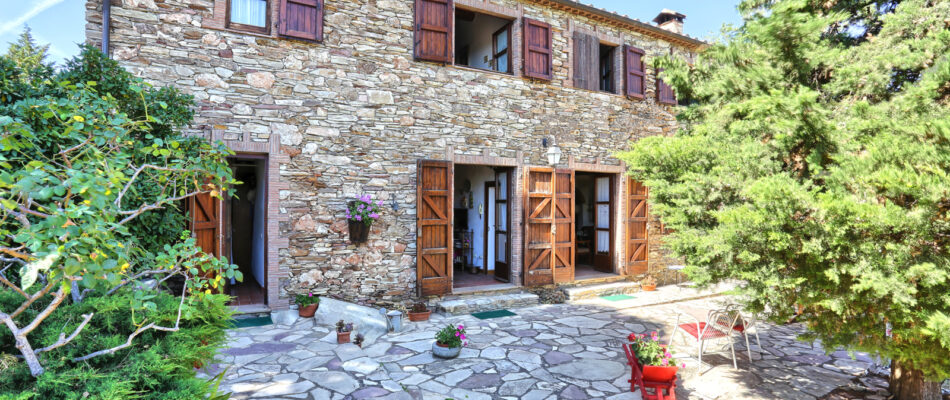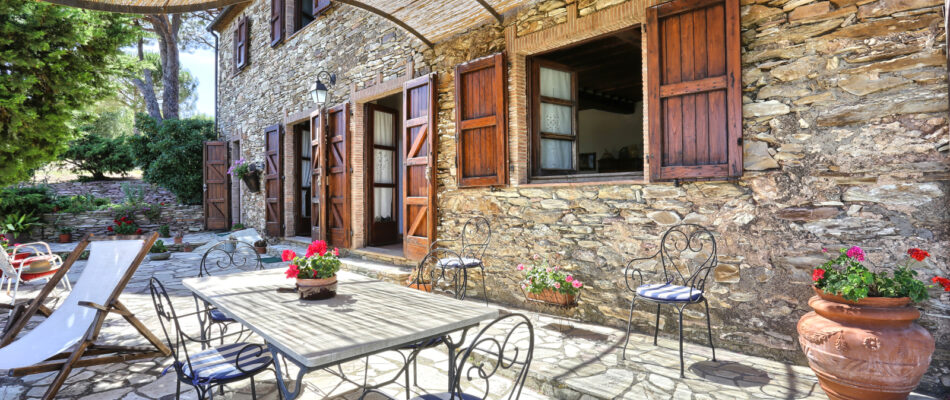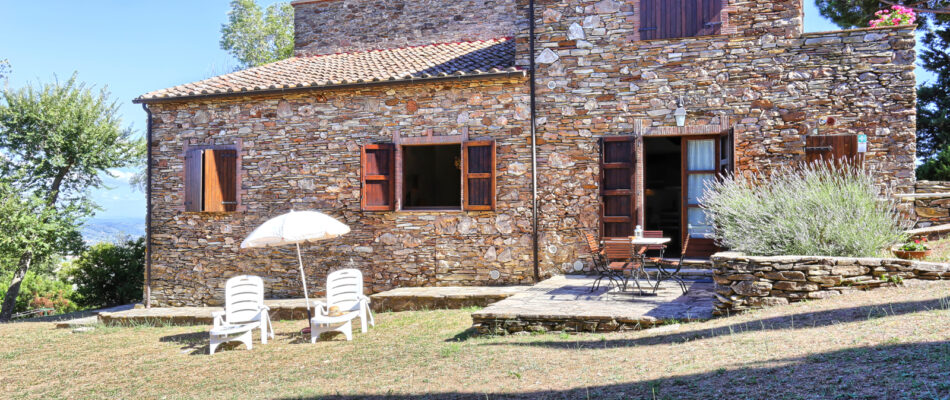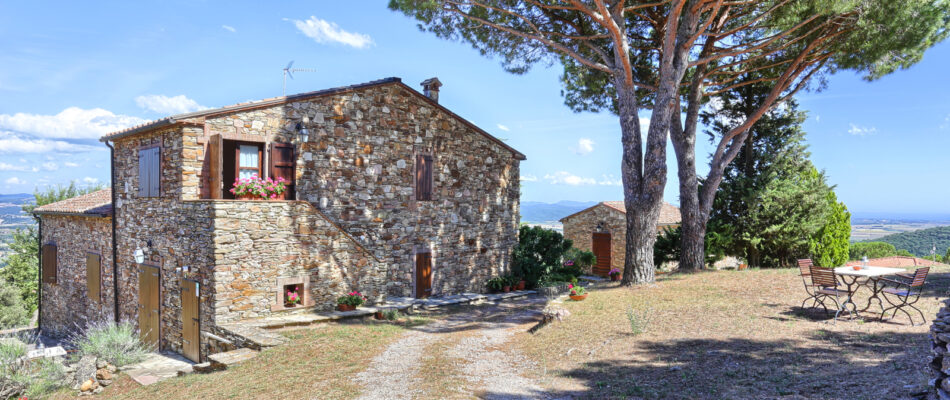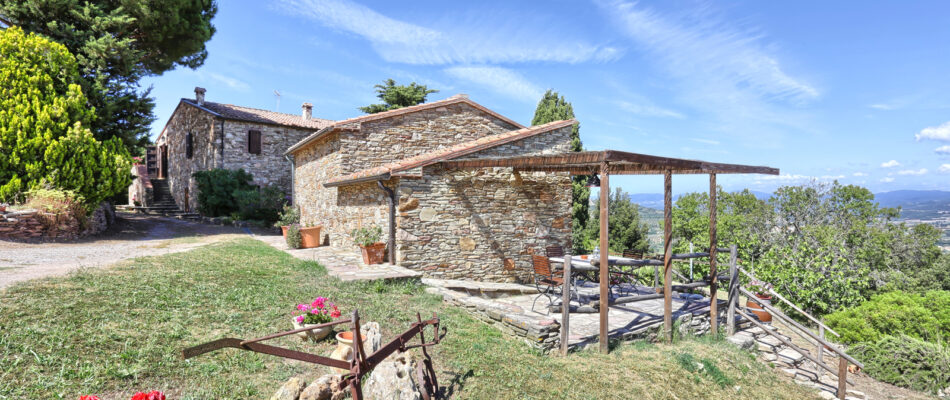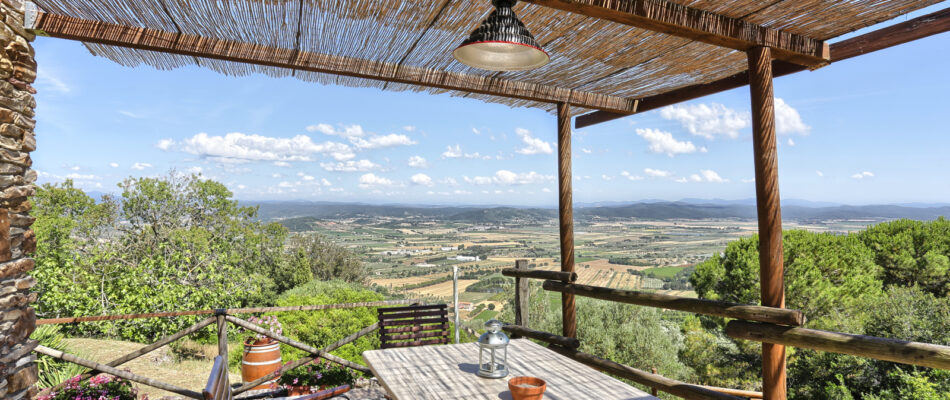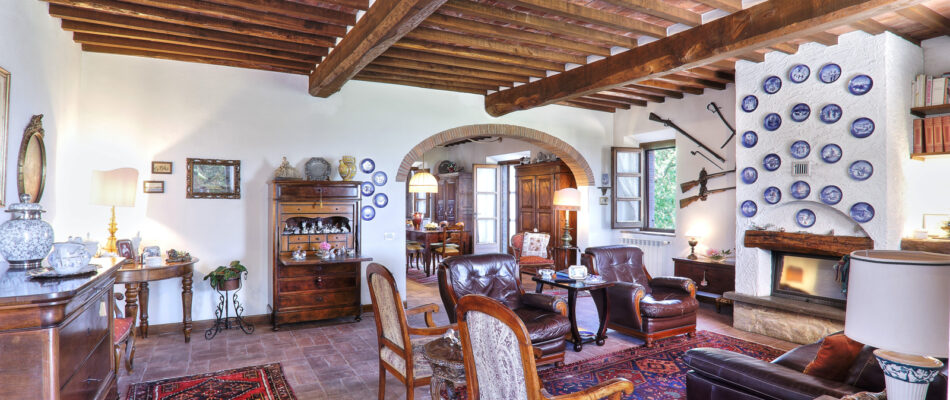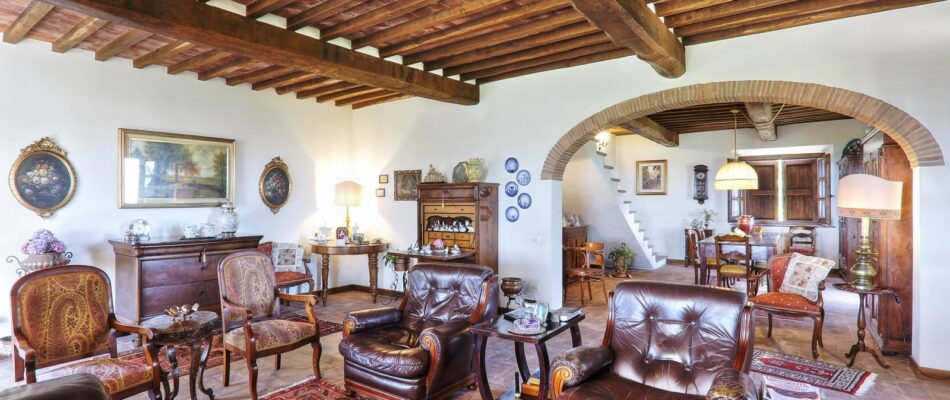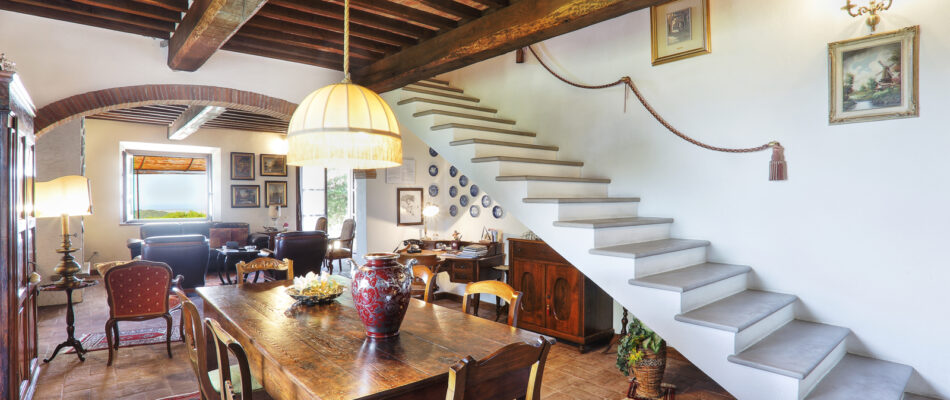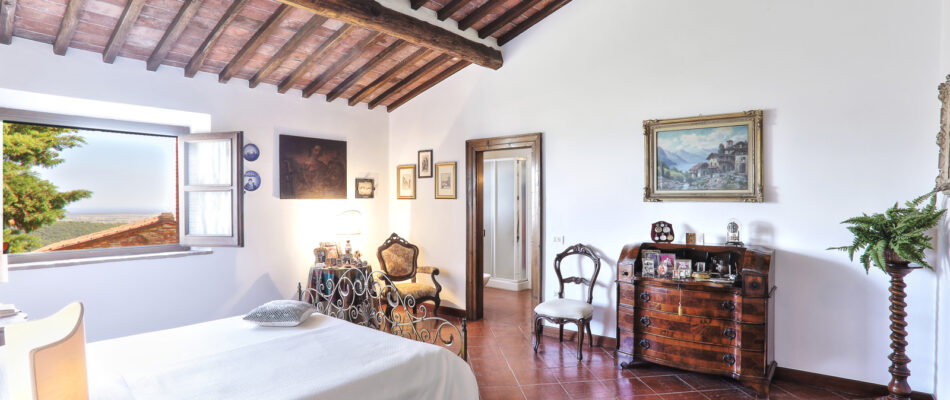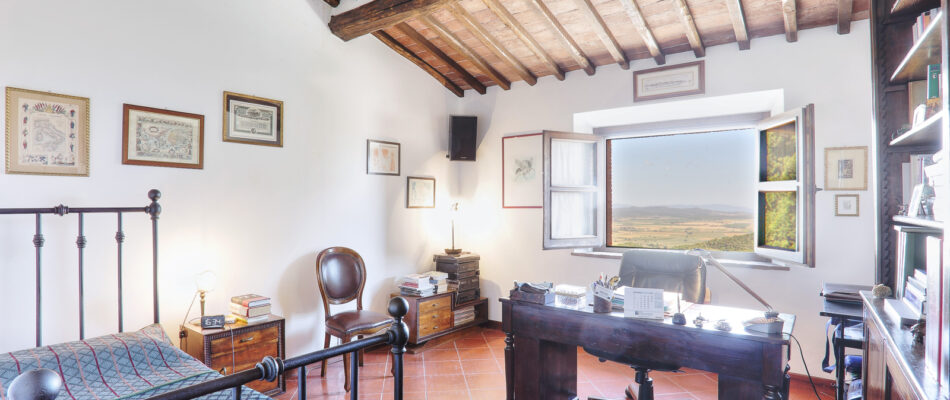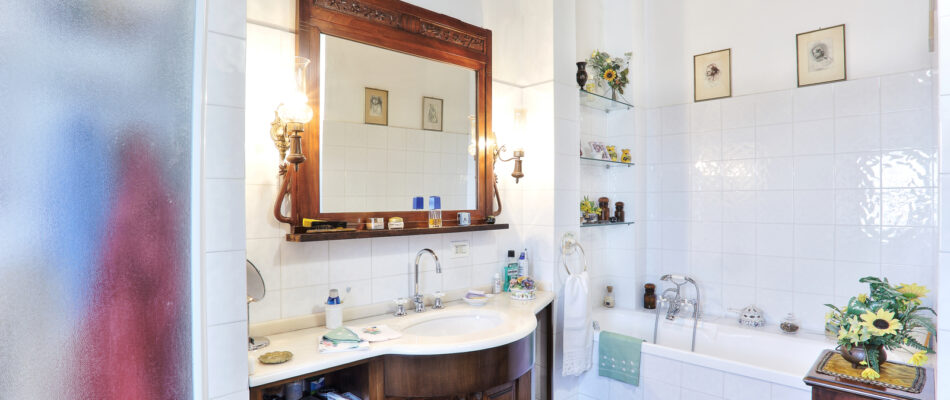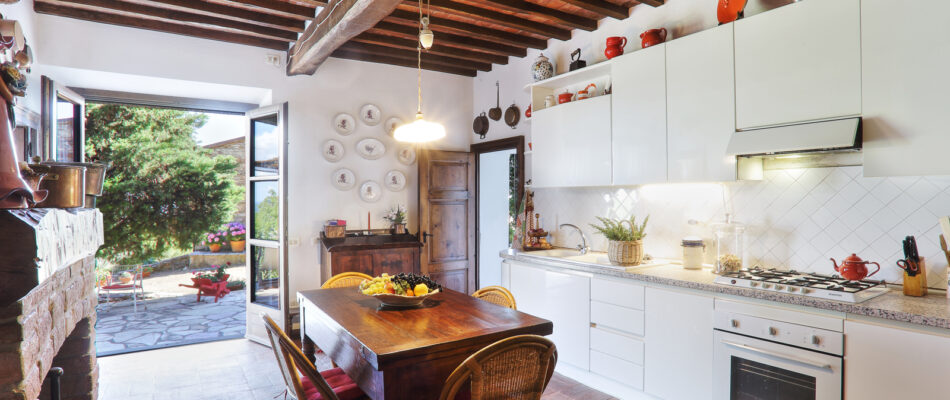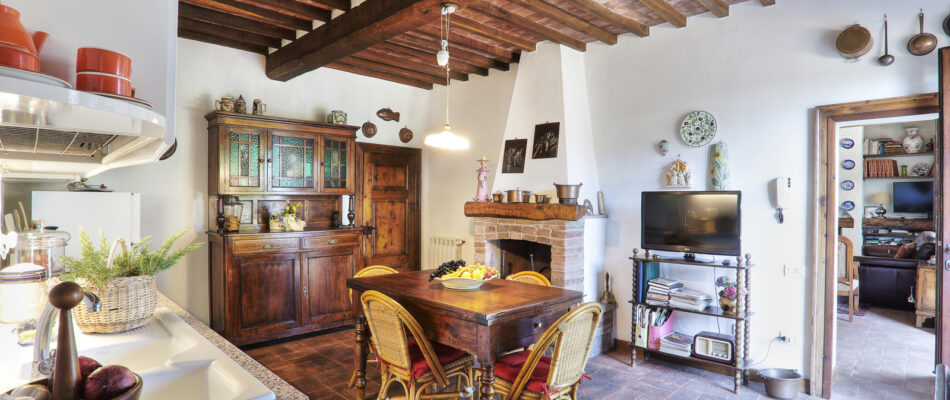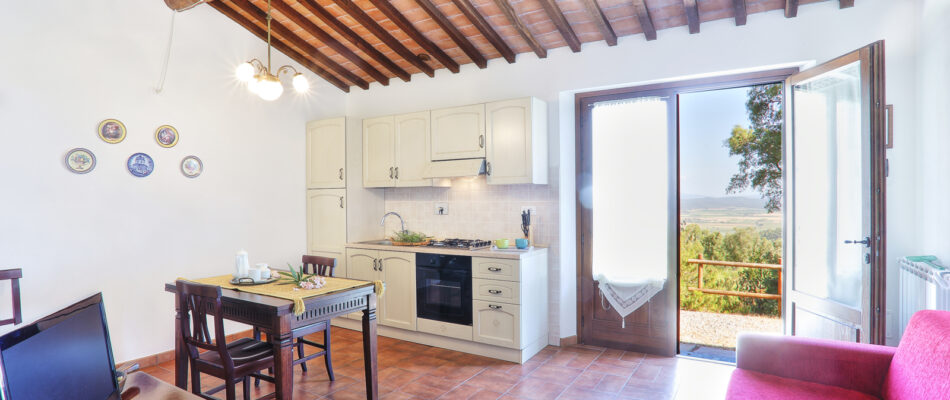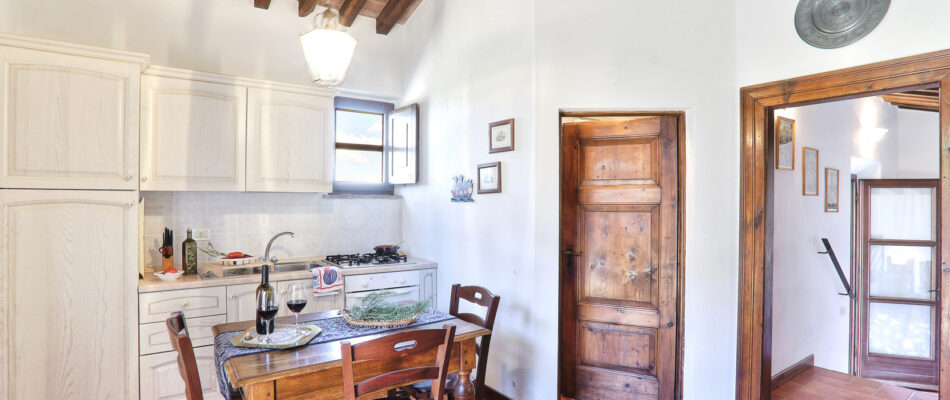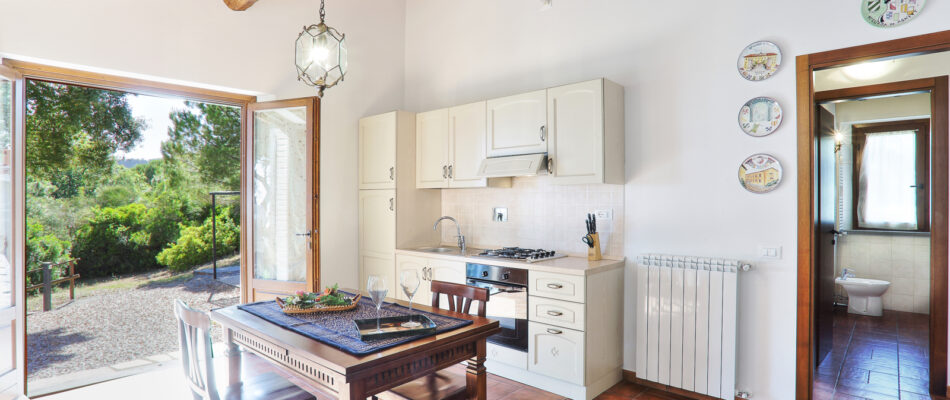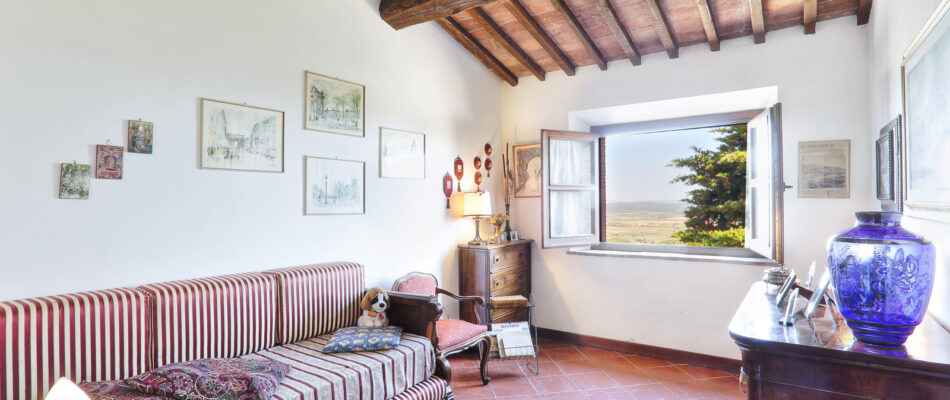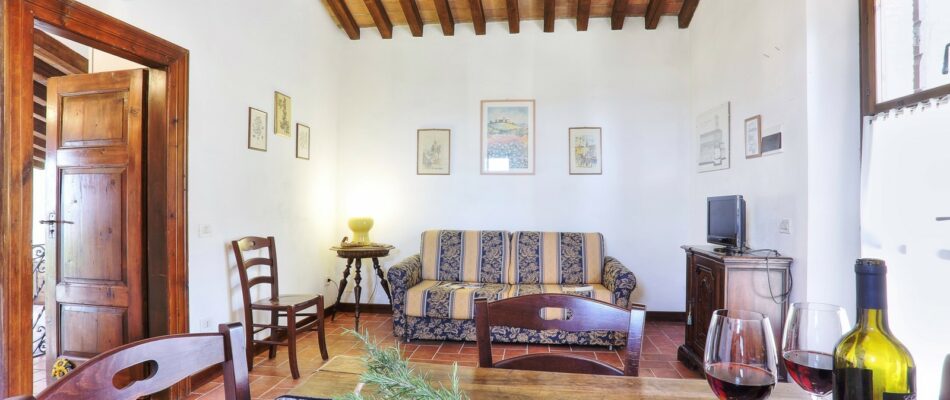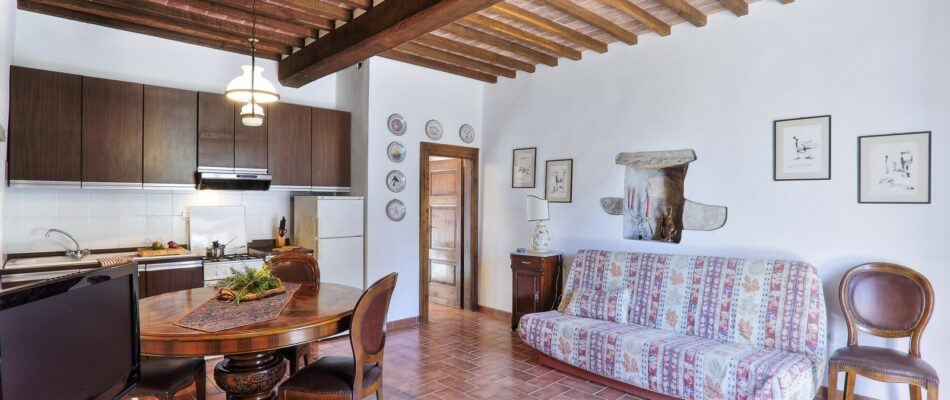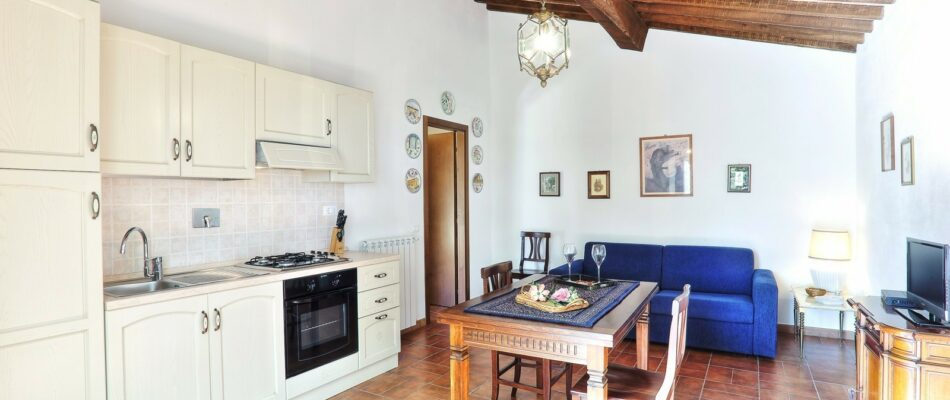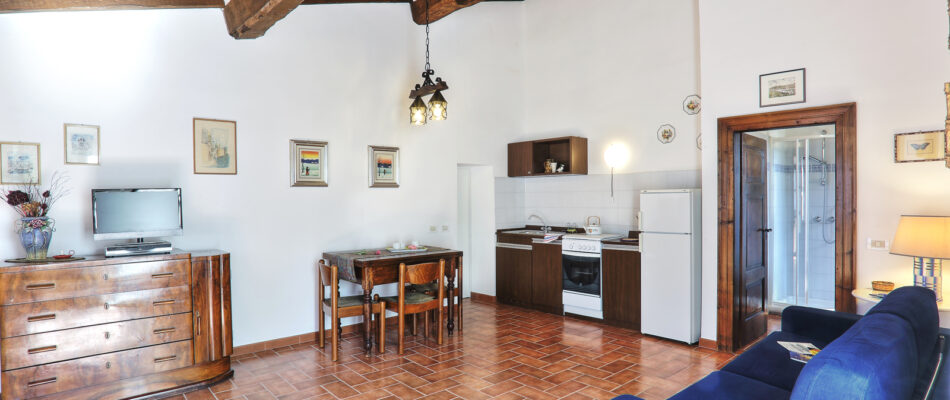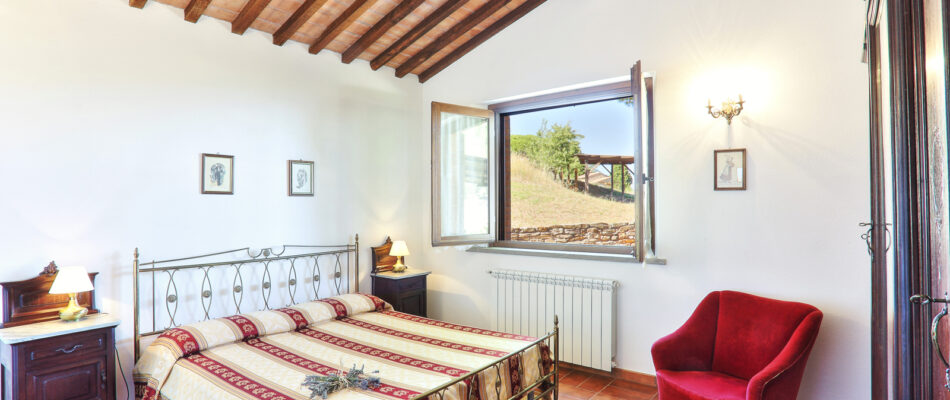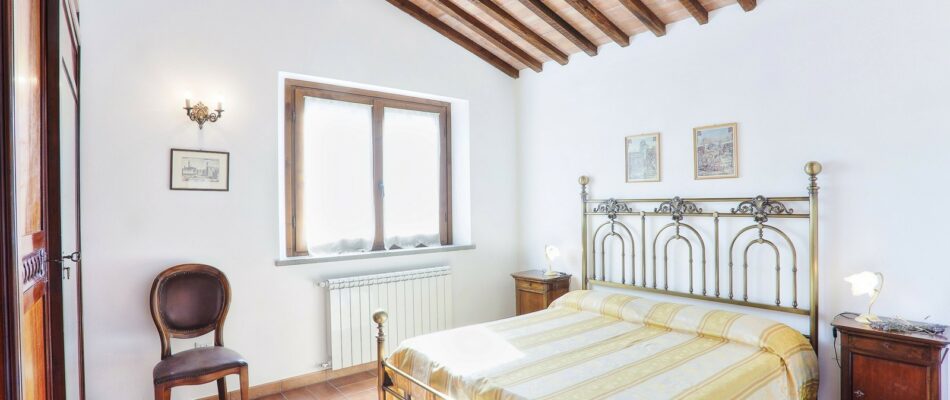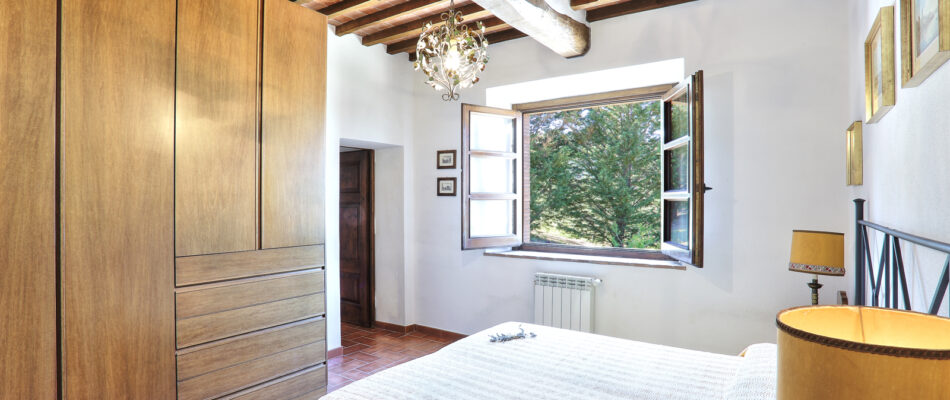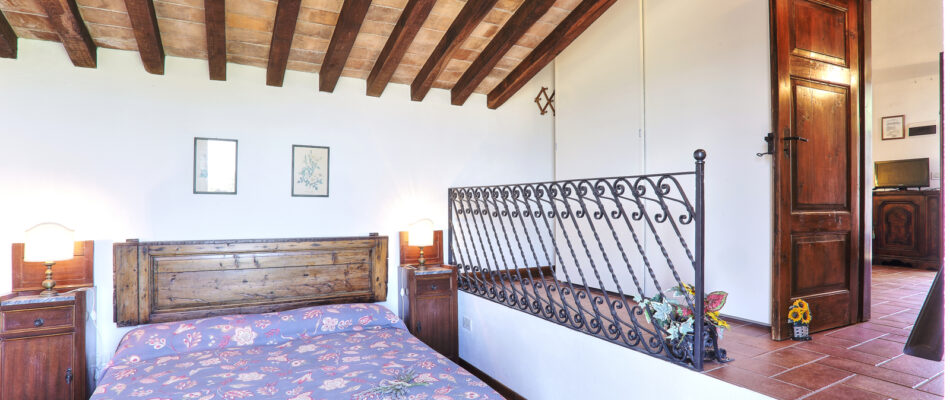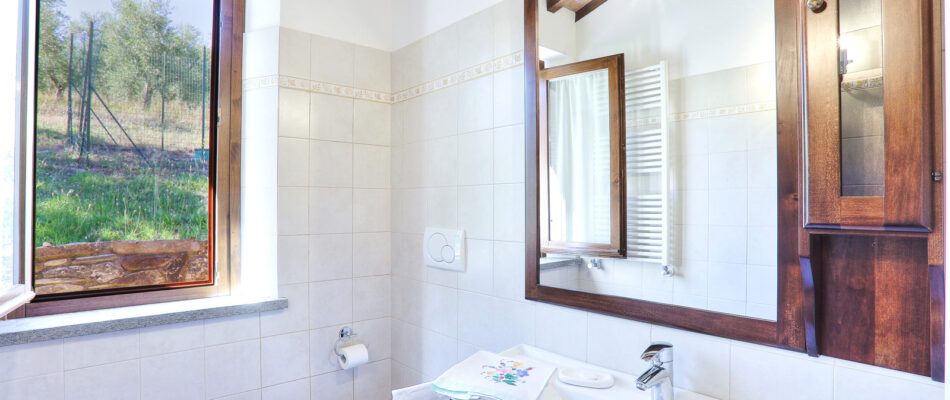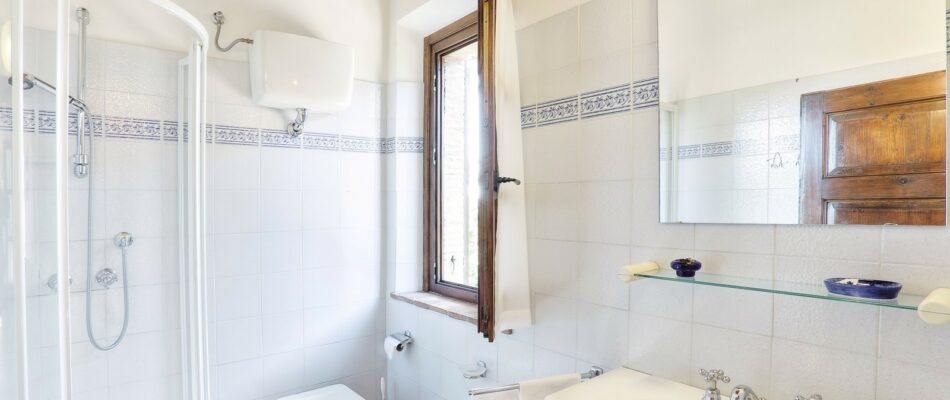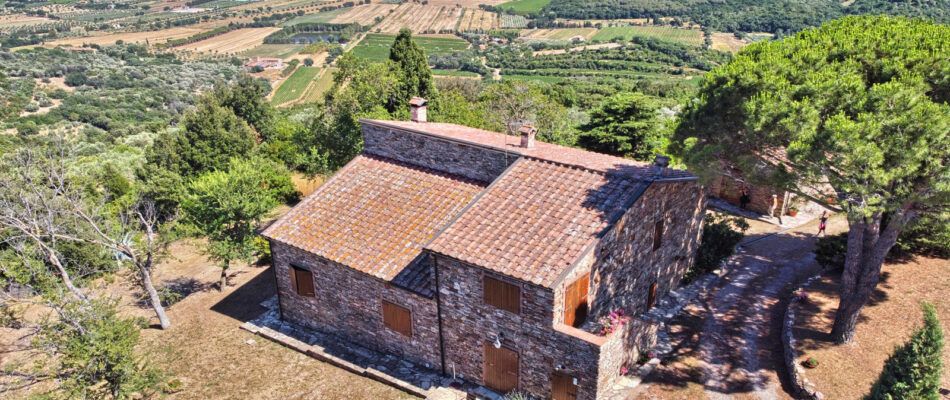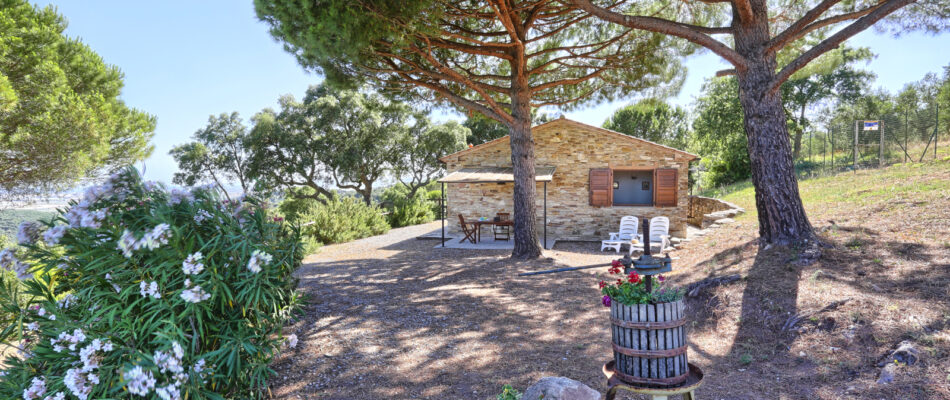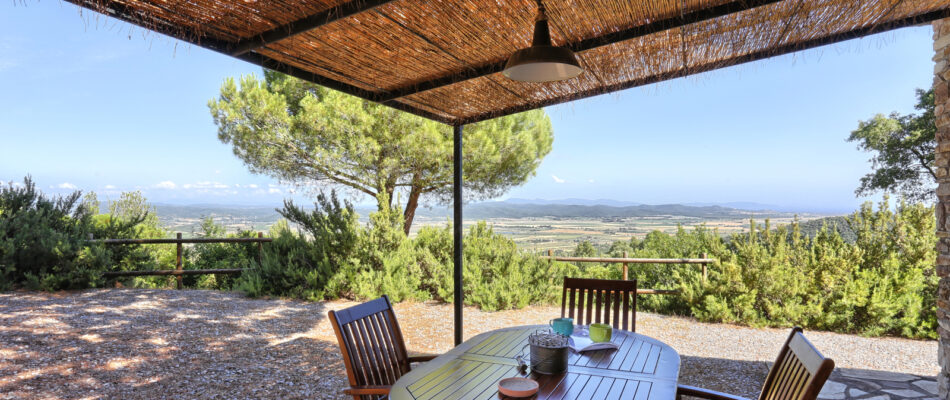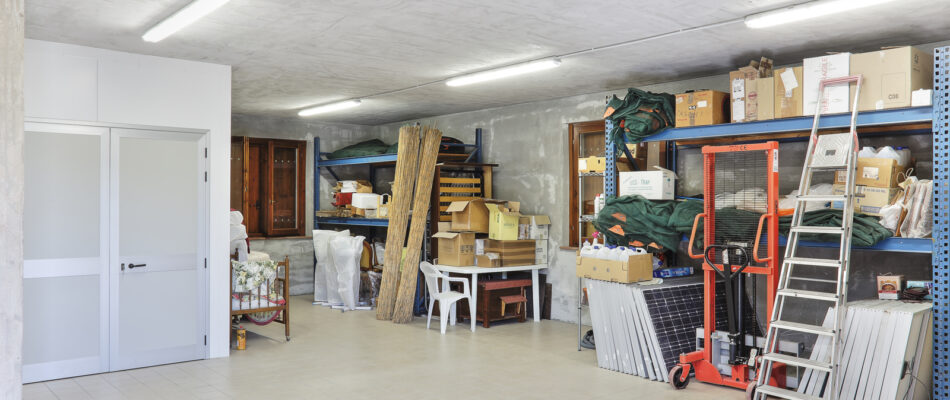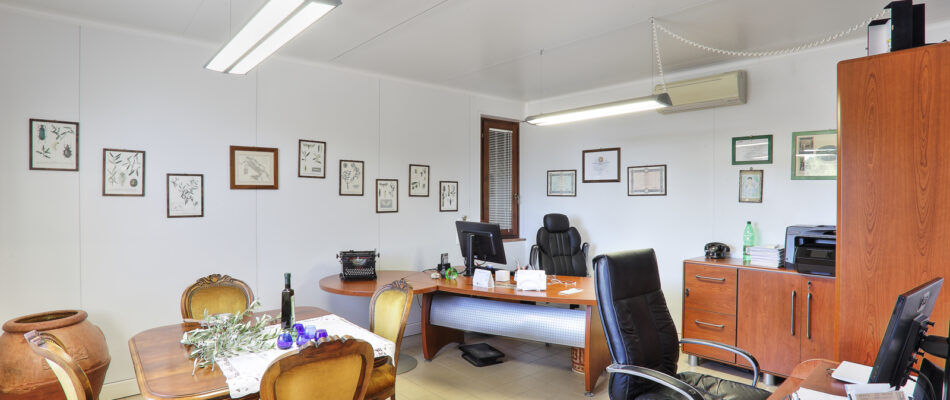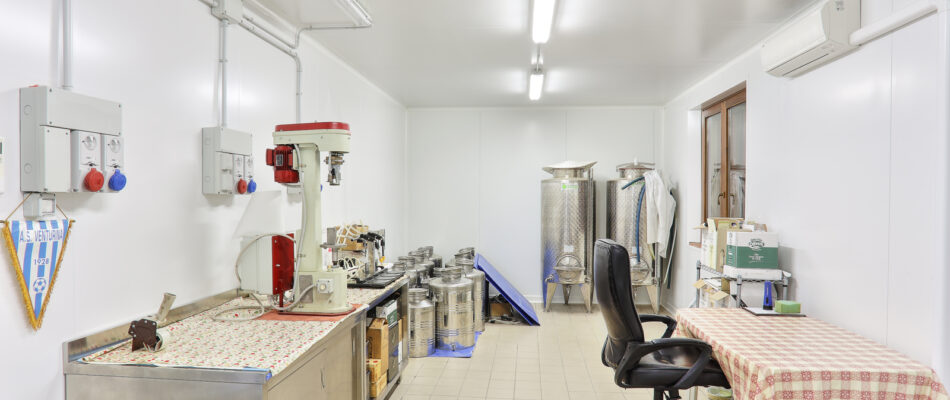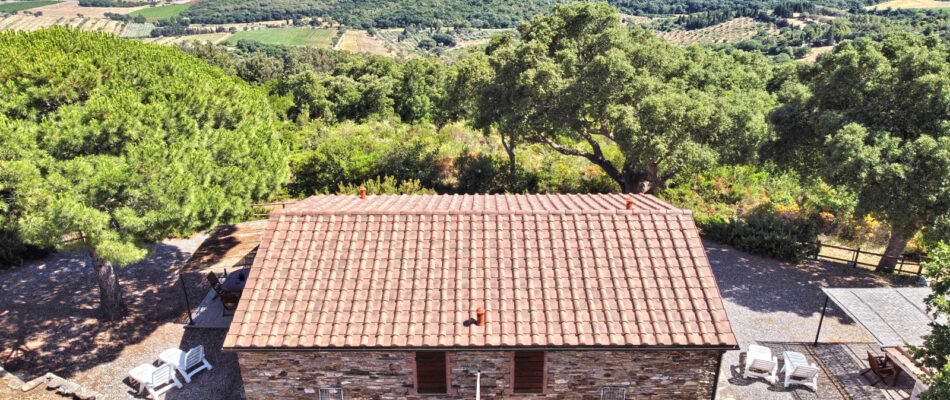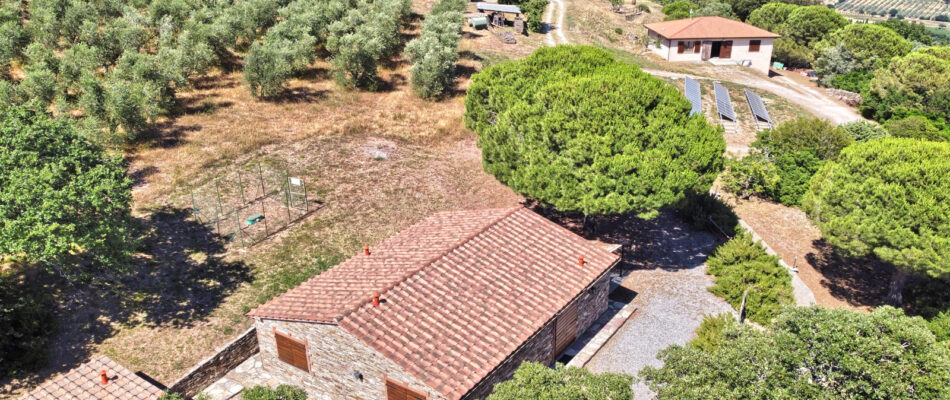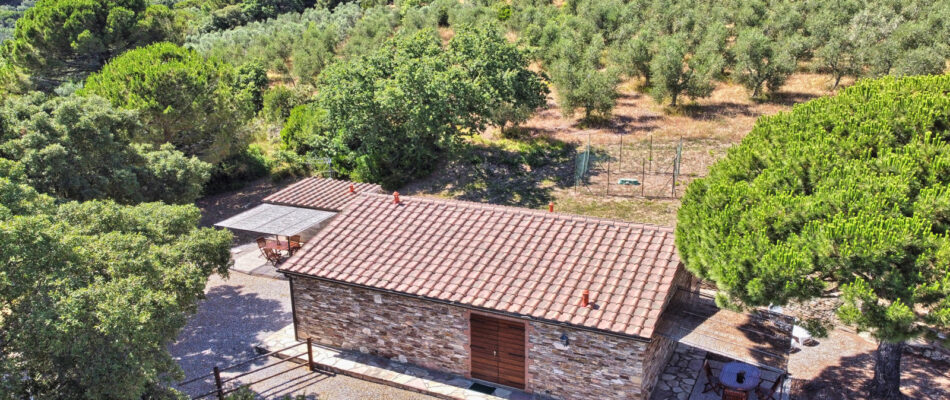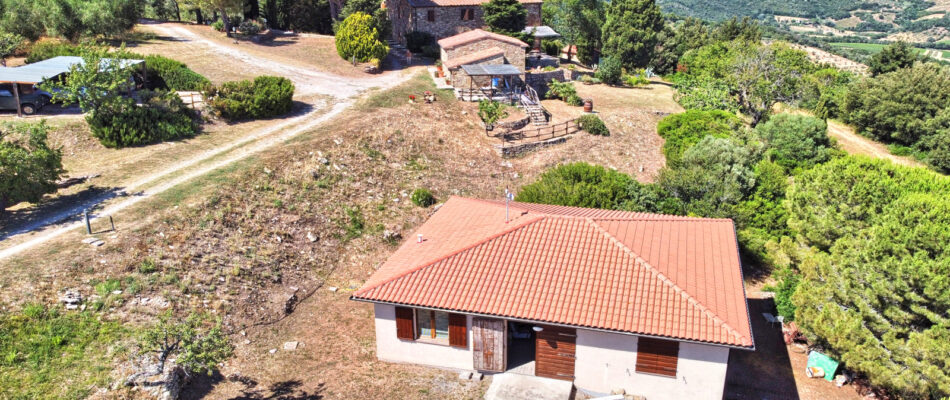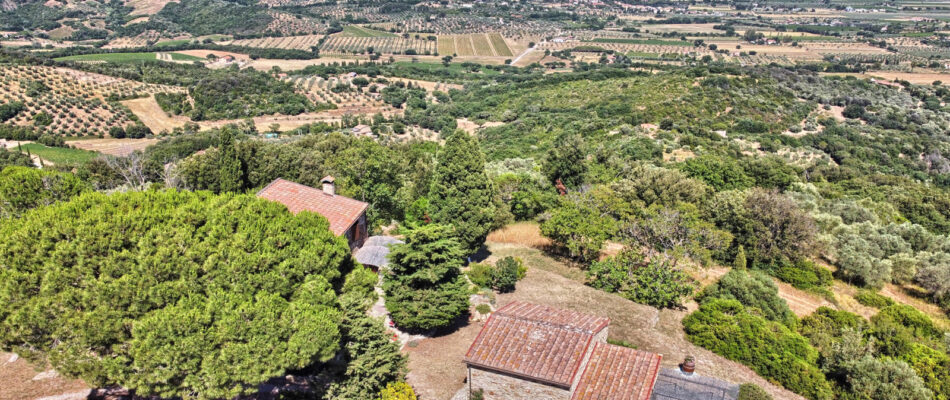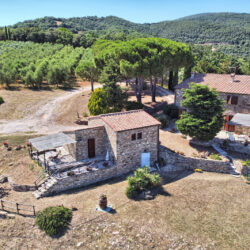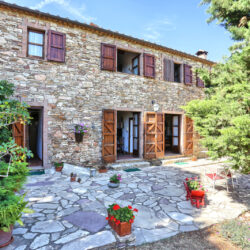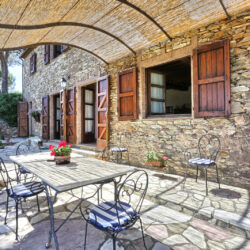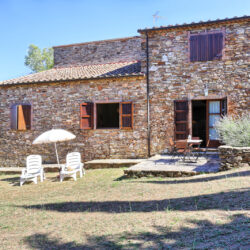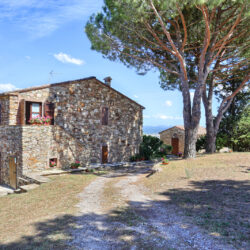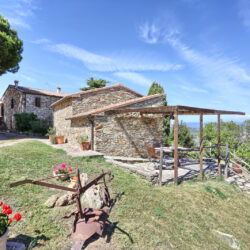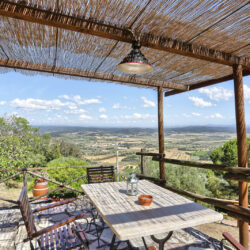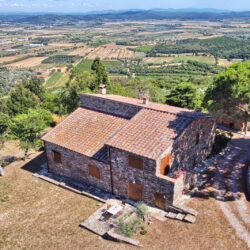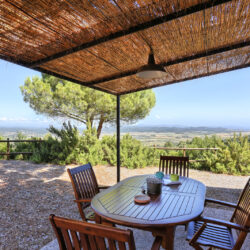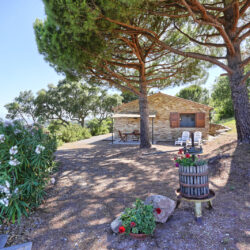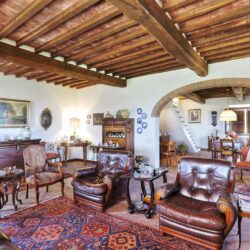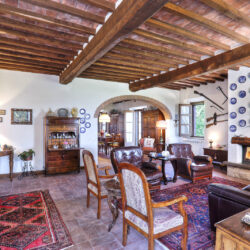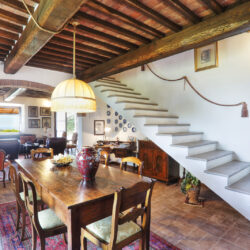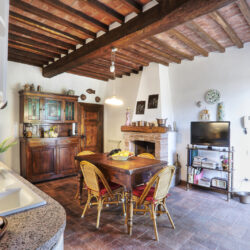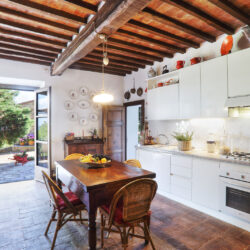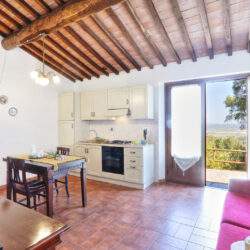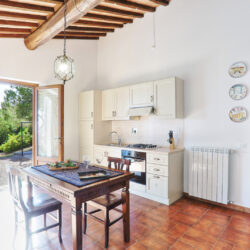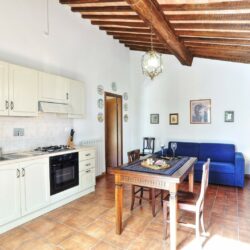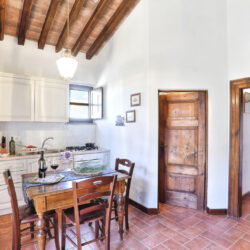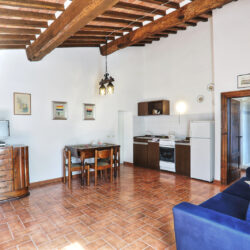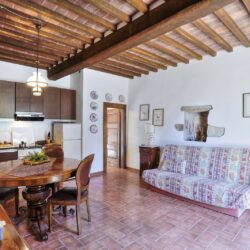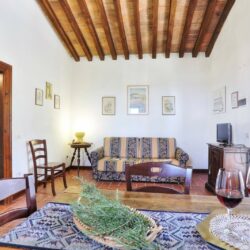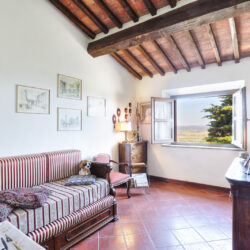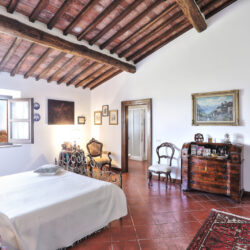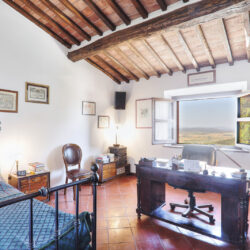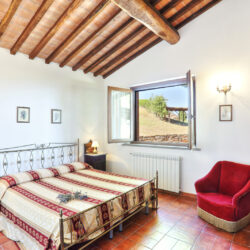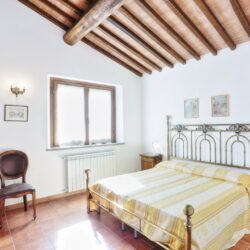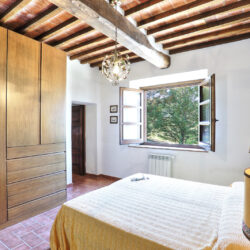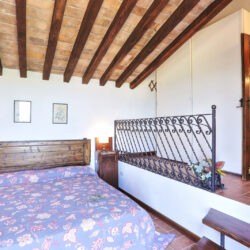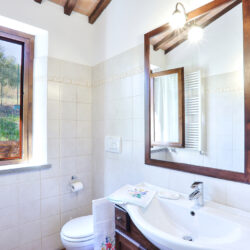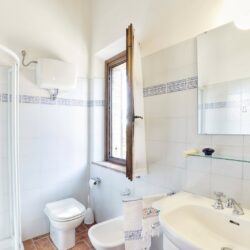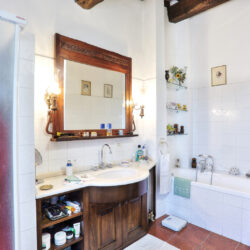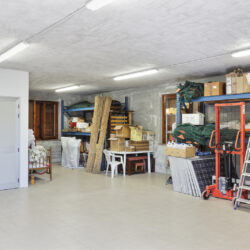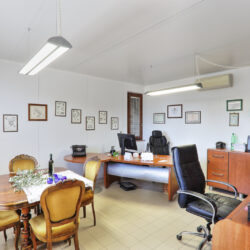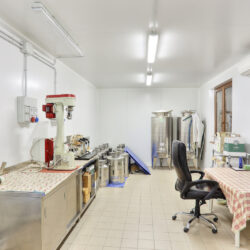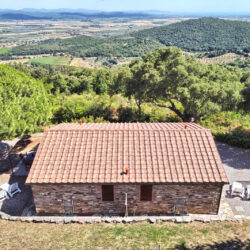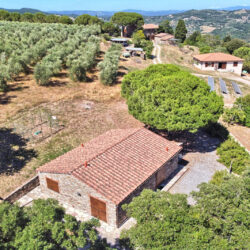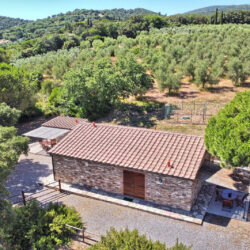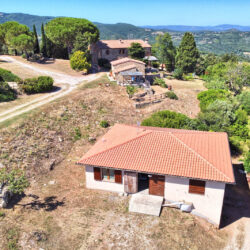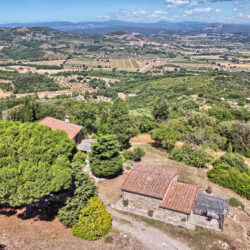ITALY, TUSCANY, LIVORNO, SUVERETO
Charming farm with farm and accommodation business of about 540 sqm total and 20 hectares land in a hilly position in the typical Tuscan countryside of Val di Cornia, between Suvereto and Campiglia Marittima.
Description
A delightful hamlet hosting the 200 sqm main house, the family-run agritourism consisting of 5 apartments, 4 of which are two-room apartments and one one-room apartment created between the main house and two rustic cottages, as well as two outbuildings.
The main house opens on the ground floor to a cozy living room with fireplace, dining room, large kitchen with fireplace, pantry, laundry room and service bathroom.
The imposing internal staircase leads to the second floor hosting the sleeping area with three bedrooms, two of which are doubles, and two large bathrooms, one of which has a bathtub and shower.
In the same structure a studio apartment of 35 sqm and a two-room apartment of 50 sqm. Completing the farmhouse are two rustic stone cottages used to house three two-room apartments, one of 45 sqm and the other of 90 sqm. The apartments are furnished with care, each is independent and different from the other and enjoys privacy and dedicated outdoor area. There are two outbuildings, one of which is used as a technical room and the large plastered shed of 200 square meters with farm shed, office, tasting and direct sales room as well as service bathroom and storage and bottling room.
Outdoor Spaces
The property is in a fairy-tale location halfway between the two characteristic medieval villages of the Etruscan coast and enjoys panoramic views of the sea of Punta Ala, the island of Elba, the Val di Cornia and the hills of Massa Marittima.
The farm is nestled in its own 20 hectare plot of olive trees, forest and Mediterranean scrub. The 4 ha of olive grove has 1100 olive trees, looked after with care and expertise all year round, of the best-known and renowned varieties of Tuscany such as Leccino, Moraiolo and Frantoio, as well as other lesser-known and local varieties no longer cultivated that the property wanted to plant in order to safeguard their history and memory.
Condition and finishes
The property has been recently and carefully restored respecting its rustic Tuscan character with the stone and chestnut-beamed ceilings that recall the essence of Tuscan character and the rustic mezzane floor tiles conveying warmth and familiarity.
Every detail has been finished under the banner of the traditions of the area but also of the love for the environment and beauty. Nothing is left to chance but rather the result of an ideal chosen, desired and realized.
Potential uses
An ideal property for a large family that is looking for quiet and relaxation but also for those who wish to continue and increase the accommodation and agricultural business perfectly started by the owner family.
Location
A strategic location, a quarter of an hour from the sea, the beaches San Vincenzo and the Gulf of Baratti, half an hour from Bolgheri and its Sassicaia, in one of the most accredited municipalities for the production of wine.
